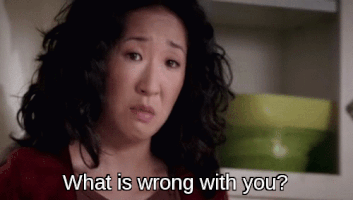“What is wrong with you?” It’s a question usually asked with exasperation when we just can’t understand another person, their behaviour, their attitude, or their beliefs. Asked of an adult the question is damaging enough, but when a parent uses the phrase as an expression of frustration a child grows up believing there is something wrong with them.

Asking, “What is wrong with you?”, assumes there is an answer. A condition, a label, some explanation of the difference or deviance being experienced by the questioner. A satisfying response might be, “Oh sorry I’m bi-polar” or “I’m British”. Perhaps, “I’m not well”? We want a name, a reason, a label.
I can’t help wonder what would happen if asked “What is wrong with you?” we replied, “Absolutely nothing.”?
Part of counselling is helping people see there really is nothing wrong with them. We come to counselling, as we go to our family doctor expecting a diagnosis and a prescription. In truth we are human beings doing the best we can in responding to the challenges of life. Living with the consequences and choices that precede us and about which we can do very little. Yes, our actions may be more or less skilful. In trying to pursue our needs we may resort to destructive behaviour. We could be less than helpful towards those around us when we are hurting, angry or stressed. But these are ordinary human behaviours.
The #WhatIsWrong? Approach to the world assumes that there is something that can and must be fixed. It is an attitude toward human behaviour that wants to make everyone carbon copies of myself.
There is a ridiculous Victorian hymn that says, “Even now we speak and think the same, and cordially agree. Concentred all in Jesus name, in perfect harmony.” Rubbish! I have never experienced that in any church or other community. It’s just not the way humans are together. We are different and diverse and because of that we struggle and strive. Nothing is wrong, it is just different from who we are and what we prefer. Yet we persevere in our prejudice. What is wrong with students, presidents, teachers, rugby coaches?
If there is anything that characterises human life in the past ten years it is a growing sense of our rich diversity. My parents only ate British and Boerekos (Tr. Afrikaans food) I now eat Italian, Thai, Japanese, Indian, Chinese, African American, and Jamaican cuisine and love the variety.
If we can be so globally inclusive with our palettes why not with other parts of life? What is it about our herd consciousness that wants our viewpoint and no one else’s to exist?
Our religions, political groupings, ideologies, cultures and clans exert huge power over us to be suspicious of anything different.
If we listen only to them we will never transcend our partisan perspectives. We will also not progress beyond language and cultural ghettoes. Much needed global and universal consciousness will never be found in this way.